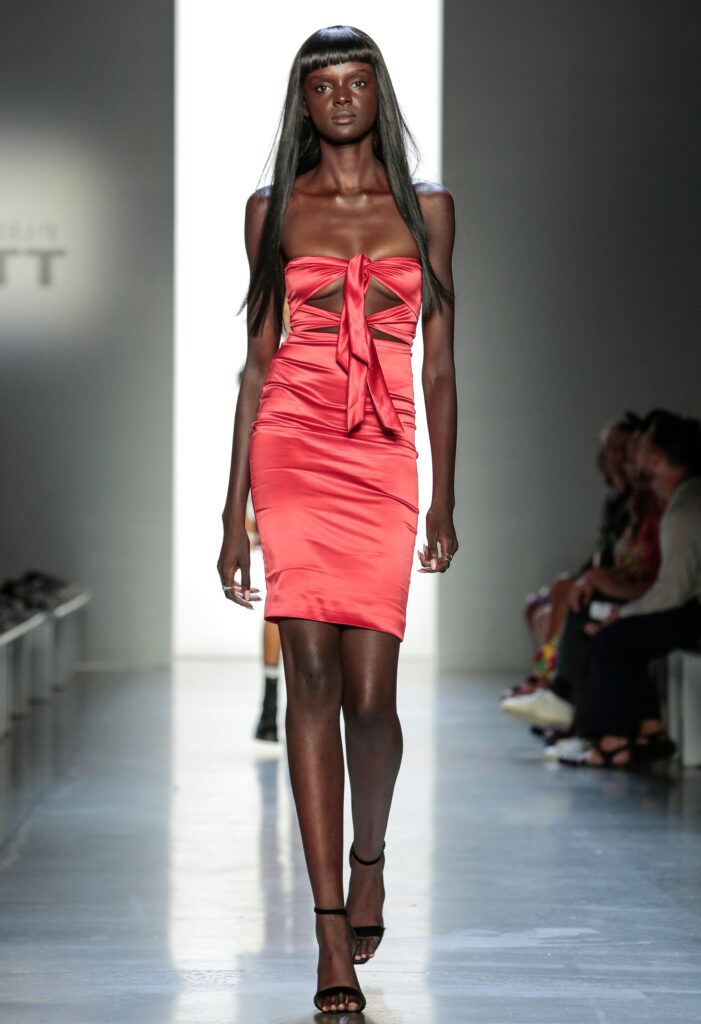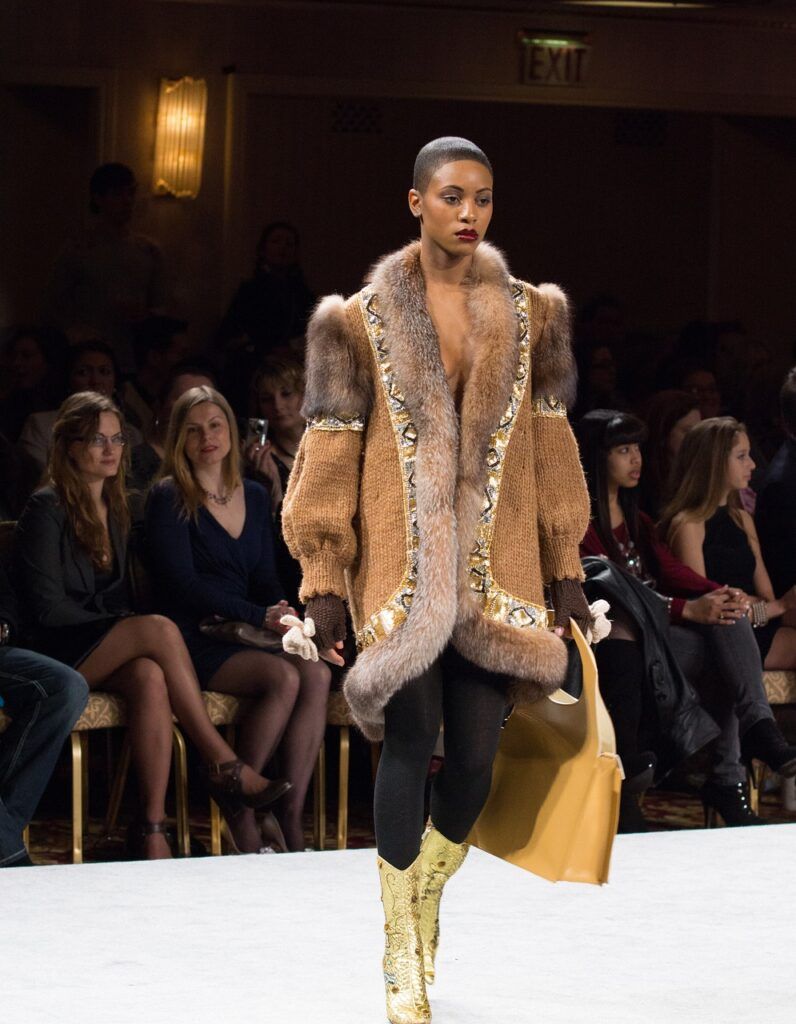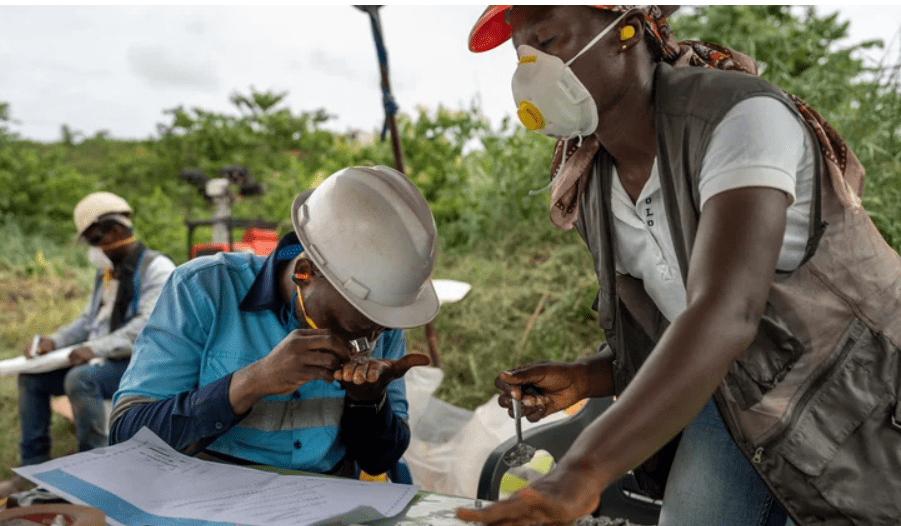Melbourne Fashion Week, an event celebrated for its commitment to diversity, is has come under fire over reports of a model boycott in protest of racism within the Australian fashion industry.
The Age reports that at least a dozen Black models have opted not to participate in this year’s event, making a powerful statement against the deeply ingrained racism within the industry.
The concerns voiced by these models encompass a wide spectrum of issues. They include significant pay disparities when compared to their White counterparts, a lack of inclusive practices concerning African hair and makeup, and allegations of tokenism.
According to 2019 research from LeanIn.org, Black women are paid 21 % less than White women.

Discrepancies in pay have been an ongoing issue in modelling across the globe, with Supermodel Iman sharing her experience whilst working in the 1970s.
“My first experience [of racism] was seeing the discrepancies in pay between White models and Black models,” she told Naomi Campbell’s Unfiltered program.
“My rate was different to White girls, it was an unspoken rule.”
British model Jourdan Dunn once told the podcast TTYA Talks, “I remember the girls I came up with, like my best friends in the industry, Cara [Delevingne] and Karlie [Kloss], I know their rate was different to my rate, even though we were doing the same jobs.”
To date, a total of 13 Australian models have united to shine a spotlight on the systemic discrimination that has persisted throughout the fashion industry. Their collective boycott of Melbourne Fashion Week (MFW) underscores their determination to bring about change.
These models have taken various actions to make their stance against MFW clear. Some have rejected participation offers outright, while others have refused casting calls. Their unified objective is to use the platform of this highly anticipated fashion event, scheduled to commence next Monday, to draw attention to the racism they’ve experienced in the industry.
These experiences range from receiving significantly lower pay than their White peers to disturbing incidents such as racial slurs used by a photographer and derogatory remarks from hairstylists concerning African hair.

Awar Malek, a 24-year-old Sydney-based model, shared her traumatic experience, stating that participating in MFW was emotionally distressing.
“Black models doing Australian fashion is a form of self-destruction”, Malek said. “It is absolutely the most traumatising, and dehumanising, underpaying, and overall mentally draining week and I have no desire to continue to participate.”
By their powerful and collective action, these models aim to initiate a crucial dialogue about racial inequality and discrimination within the fashion industry, ultimately calling for systemic changes to address these deeply entrenched issues.
This development comes in the wake of years of criticism from prominent models, including South Sudanese-born Australian supermodel Ajak Deng, who, despite international success, faced challenges finding work within Australia’s fashion industry due to rampant racism.
In 2016, Deng left the fashion world following comments by her former manager, Stephen Bucknall of FRM Model Management, who expressed a preference for “Caucasian girls” over “dark-skinned” models.
“They’ll book the big Caucasian girls, spend the big dollars, and fly them in from LA, but I’m yet to see them book a dark-skinned girl in that way,” Bucknall said at the time.
“The Australian market doesn’t want to take the risk of using darker models as mainstream models. But if you go to New York, you’ll see African American, Asian, and all these diverse cultures. Australia just doesn’t get it.”
In 2017, Deng’s participation in Melbourne Fashion Week was seen as a positive sign of change within the Australian fashion scene.
Last year, Melbourne-born supermodel Duckie Thot, who faced career hurdles due to the industry’s fixation on whitewashed beauty standards, became one of the faces of Melbourne Cup, signalling progress in the industry’s push for “inclusion” and “diversity.”
However, the recent model boycott indicates that these efforts for inclusion may have been short-lived.
The City of Melbourne, which organises MFW, maintains that all models are paid fairly despite the mounting allegations.
“All models walking at Melbourne Fashion Week are paid the same rate, with the exception of some higher profile models – including those from diverse backgrounds,” they said. “The standard rate is comparable or above similar fashion industry events.”

